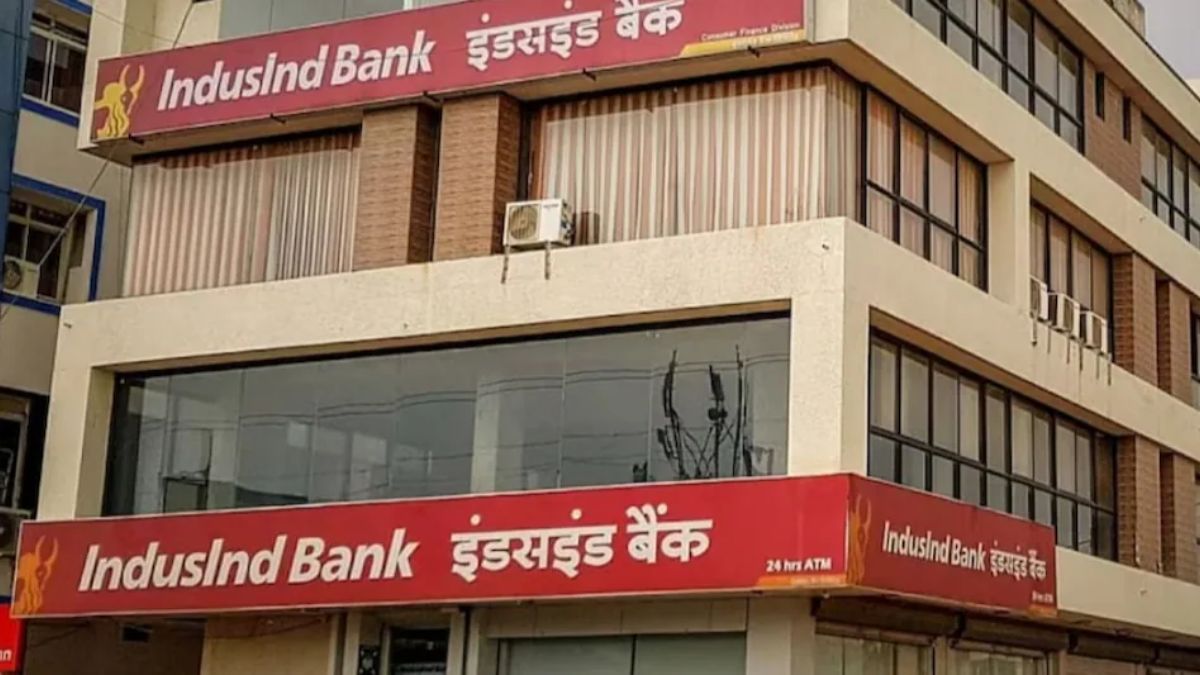Shares of IndusInd Bank Ltd fell sharply by over 20% on March 11, following the bank’s disclosure of significant discrepancies in its derivative portfolio. The stock hit ₹720.35, down ₹180.15 from its previous close of ₹900.50, and remains under selling pressure with a possibility of further downside as trading continues.
Derivative Portfolio Discrepancies Impacting Net Worth
IndusInd Bank revealed in a regulatory filing on March 10 that it had identified an adverse impact of 2.35% on its net worth due to discrepancies in its derivative account balances. The issue, which stems from a process flaw in the accounting of inter-desk FX hedge swaps, has raised serious concerns among investors and analysts.
The potential loss from the discrepancy is estimated to be around ₹1,500 crore, though the final impact is yet to be determined pending an external audit. According to Moneycontrol, the loss may increase further as the review progresses.
Brokerage Downgrades Following Disclosure
The stock’s sharp decline has prompted multiple brokerages to revise their ratings and target prices for IndusInd Bank:
-
Morgan Stanley maintained an ‘Equal Weight’ rating on IndusInd Bank, setting a target price of ₹900 per share. The brokerage highlighted concerns over the loss of 2.35% of net worth, stating that the lack of management visibility and recent CFO resignation adds to uncertainty.
-
Motilal Oswal (MOSL) downgraded IndusInd Bank from ‘Buy’ to ‘Neutral’, lowering the target price to ₹925 from ₹1,100. The downgrade follows the bank’s disclosure of low-liquidity swap contracts that were not marked to market (MTM), leading to significant financial impact.
-
Emkay Global downgraded IndusInd Bank from ‘Buy’ to ‘Add’, slashing the target price by 22% to ₹875 from ₹1,125. The firm pointed out that the forex derivative discrepancies could have a post-tax impact of approximately ₹15.8 billion on the bank’s net worth as of December 2024.
Regulatory Review and Management Response
The review of the bank’s derivative transactions follows the Reserve Bank of India’s (RBI) September 2023 directive on investment portfolio reporting, particularly in relation to ‘Other Asset and Other Liability’ accounts of the portfolio.
During an analyst call, IndusInd Bank CEO Sumant Kathpalia stated, “General reserves cannot be touched, and we’ll have to take it to the P&L.” The bank is expected to absorb the financial impact in Q4FY25, while an external audit continues to assess the extent of the discrepancies.
Disclaimer: The information provided is for informational purposes only and should not be considered financial or investment advice. Stock market investments are subject to market risks. Always conduct your own research or consult a financial advisor before making investment decisions.


